A sua mensagem foi enviada.
Processaremos o seu pedido e contactá-lo-emos logo que possível.
O formulário foi enviado com sucesso.
Encontrará mais informações na sua caixa de correio.
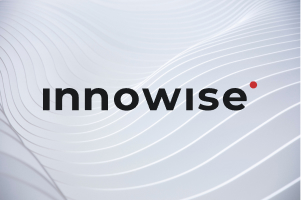
Selecionar a língua
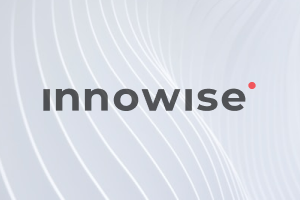

Quando se começa a procurar o melhor ERP para o sector farmacêutico, surgem frequentemente marcas como SAP, Odoo ou Oracle. Mas serão elas exatamente a melhor opção para o seu negócio? A resposta a esta pergunta requer uma análise mais profunda do que uma rápida pesquisa no Google. E neste artigo, farei o meu melhor para o ajudar a decidir por si próprio qual é o melhor.
É agora claro que o indústria farmacêutica precisa de mais do que ERPs genéricos. São necessárias plataformas especializadas que possam navegar no labirinto regulamentar que rege cada processo. Agora que o desenvolvimento de medicamentos custa em média $2,6 bilhões e os prazos se estendem por mais de uma década, as empresas farmacêuticas não podem deixar que os ERPs as atrasem. Com uma profunda experiência no sector farmacêutico, a nossa equipa da Innowise sabe como escolher um sistema ERP para a sua empresa, por isso continue a ler para saber mais.
Os sistemas ERP optimizam o inventário, asseguram a conformidade, melhoram o controlo de qualidade e conduzem a decisões mais inteligentes, entre outras coisas. Há um momento que todas as empresas farmacêuticas atingem: quando os seus sistemas antigos e ferramentas autónomas começam a causar mais problemas do que os que resolvem. Eis o que ERP repara quando bem feito.
Matérias-primas e existências sensíveis à temperatura podem corroer discretamente as margens das empresas farmacêuticas. Eu digo aos clientes: se a sua equipa está a verificar três sistemas diferentes para responder a uma verificação de stock, está na altura de comprar um ERP.
Nem todos os ERP que afirmam estar "preparados para a indústria farmacêutica" conseguem lidar com a realidade quotidiana da produção regulamentada, auditorias rigorosas e cadeias de fornecimento complexas. Por isso, olhei para além dos sites de marketing brilhantes e concentrei-me no que é mais importante para as empresas farmacêuticas.
SAP S/4HANA é o ERP de referência para alguns dos maiores nomes da indústria farmacêutica, como a Pfizer, Merck, Novartis, Johnson & Johnson, AstraZeneca e GlaxoSmithKline. Possui módulos específicos concebidos para operações de grande dimensão e altamente regulamentadas que necessitam de processamento em tempo real, conformidade rigorosa e controlo total sobre os fluxos de trabalho da cadeia de fabrico e fornecimento. Não é leve nem de implementação rápida, mas foi concebido para lidar com a escala e a complexidade em vários locais e mercados. As empresas mais pequenas escolhem o SAP Business One, outro produto da carteira SAP.
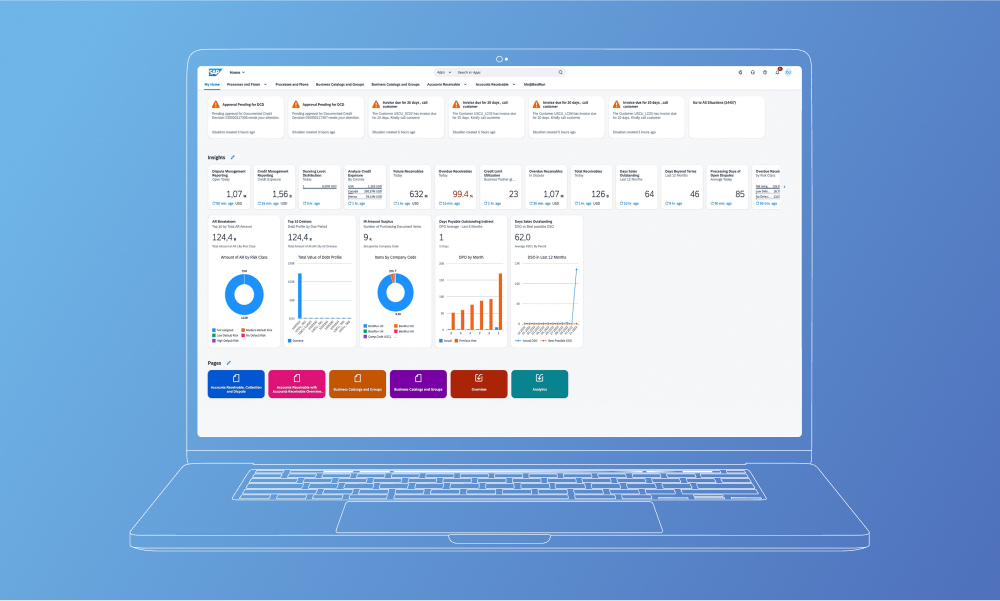
Os preços da SAP são divulgados a pedido. Em geral, os seus planos de subscrição são personalizados com base no número de utilizadores, nos módulos selecionados, no tipo de implementação (na nuvem ou no local) e no nível de suporte.
Empresas farmacêuticas de média e grande dimensão com operações em vários países, linhas de produção complexas e requisitos regulamentares rigorosos.
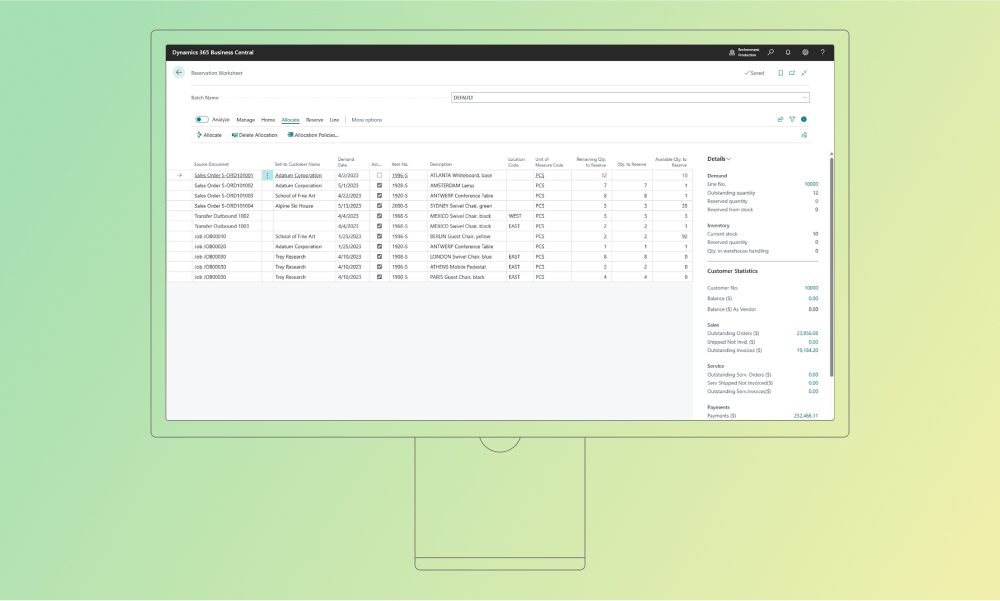
Os preços do Business Central começam em $70 e $100 por utilizador/mês (pagos anualmente), além de oferecerem licenças de $8 por utilizador/mês para quem tem acesso a funcionalidades limitadas (visualização, edição de dados selecionados, aprovação de fluxos).
Empresas farmacêuticas em crescimento que necessitam de capacidades ERP essenciais com custos gerais geríveis e integração no ambiente Microsoft.
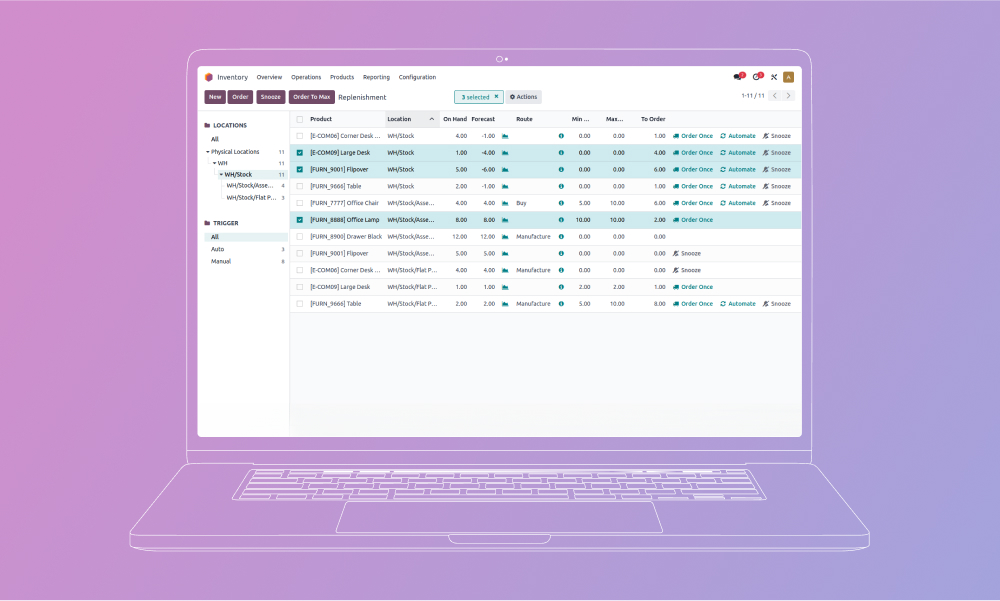
O plano de preços padrão da Odoo com acesso a todos os módulos no modo online custa €11.90 por utilizador/mês no primeiro ano de subscrição e €14.90 por utilizador/mês nos anos seguintes. O plano personalizado que suporta implementação on-premise é de €17.90 e €22.40, respetivamente.
Empresas farmacêuticas que necessitam de uma solução ERP flexível e escalável, mas que estão preparadas para investir na personalização para cumprir as normas específicas do sector.
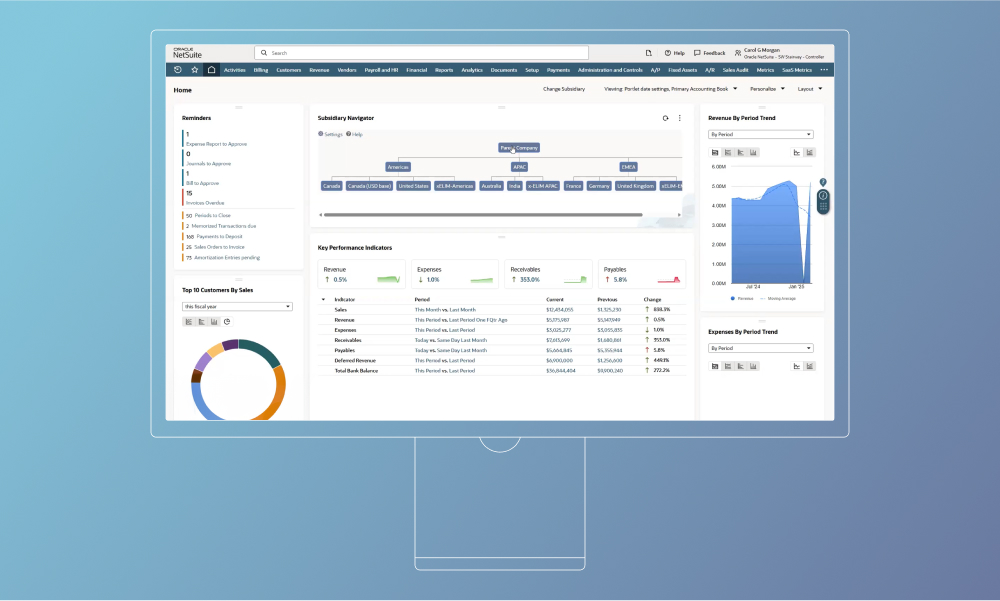
A Oracle fornece estimativas de custos individuais a pedido. Tal como outros fornecedores de ERP, os preços da NetSuite são baseados em subscrições e calculados especificamente em função dos módulos de que necessita.
Empresas de média e grande dimensão nos domínios farmacêutico e das ciências da vida que necessitam de uma solução tudo-em-um com conformidade regulamentar integrada.
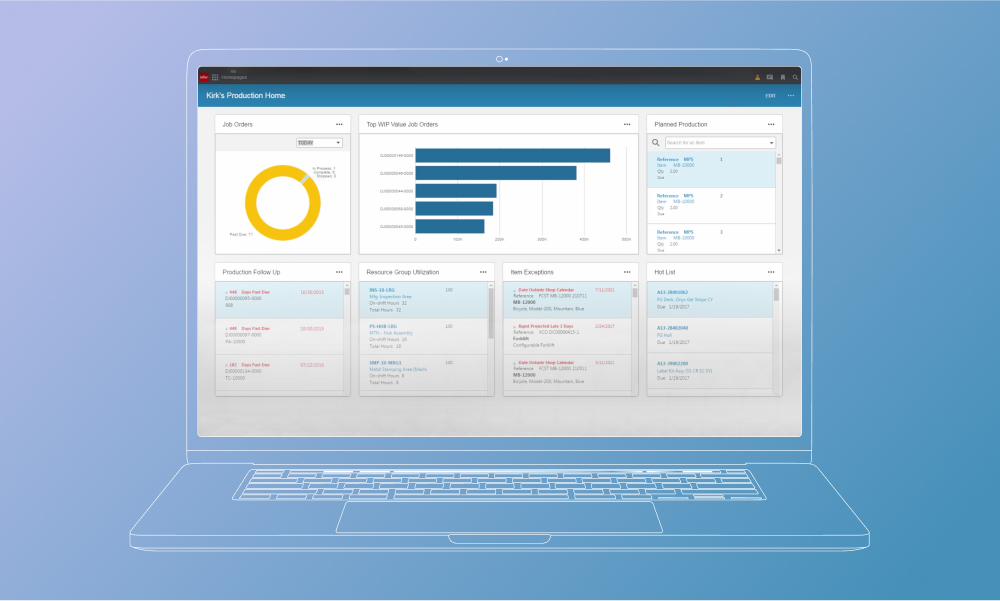
O Infor CloudSuite utiliza um modelo baseado em subscrição, com preços baseados no número de utilizadores e nos módulos selecionados, escalando à medida que as empresas crescem. O fornecedor partilha os preços a pedido.
Empresas farmacêuticas que procuram um ERP baseado na nuvem com uma forte gestão da cadeia de fornecimento, capacidades de I&D e suporte de conformidade regulamentar.
Slingshot Pharma é um dos ERPs que mostra a sua concentração nas operações farmacêuticas, especialmente em torno da conformidade e da gestão da cadeia de fornecimento. O que me chamou a atenção foi o seu forte apoio aos regulamentos 21 CFR Parte 11 e GMP. A plataforma oferece ferramentas robustas de gestão do inventário e da cadeia de abastecimento, incluindo armazéns virtuais e modelação da cadeia de abastecimento, que são inestimáveis para as empresas que gerem redes complexas de fornecedores e distribuidores. Com a Slingshot, as empresas farmacêuticas podem obter informações em tempo real sobre as suas operações e manter-se no topo da conformidade sem se preocuparem constantemente com quaisquer lacunas.
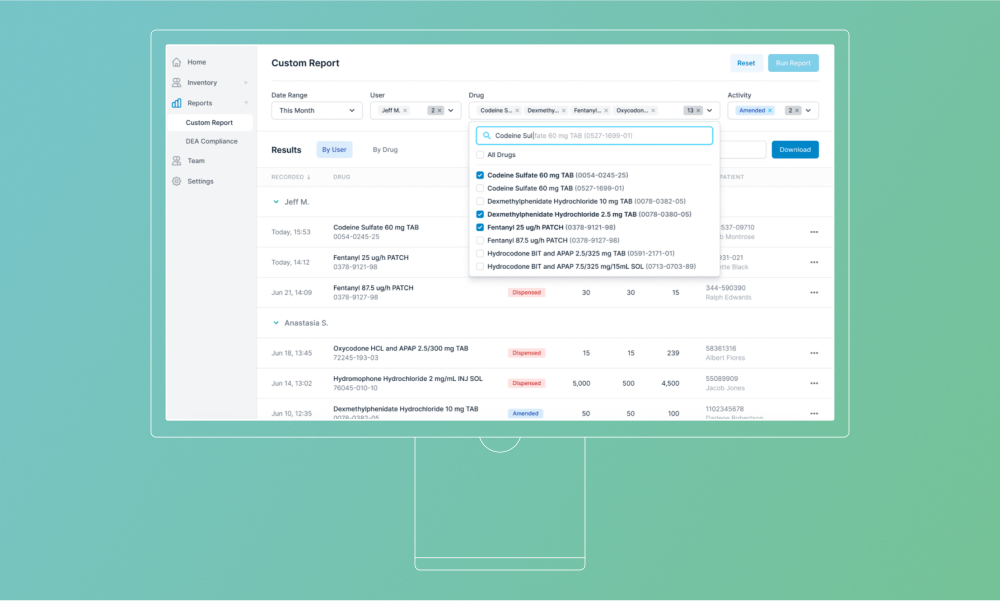
A Slingshot Pharma oferece um modelo de preços baseado em subscrição, com custos baseados no número de utilizadores e na escala dos módulos implementados. Para obter um orçamento personalizado, é melhor consultar a Slingshot ou um parceiro certificado.
Empresas farmacêuticas e biotecnológicas que se dedicam a ensaios clínicos e ao desenvolvimento de produtos. Especialmente as que procuram um sistema ERP que possa lidar com requisitos de conformidade rigorosos e coordenar os esforços das equipas de investigação e fabrico.
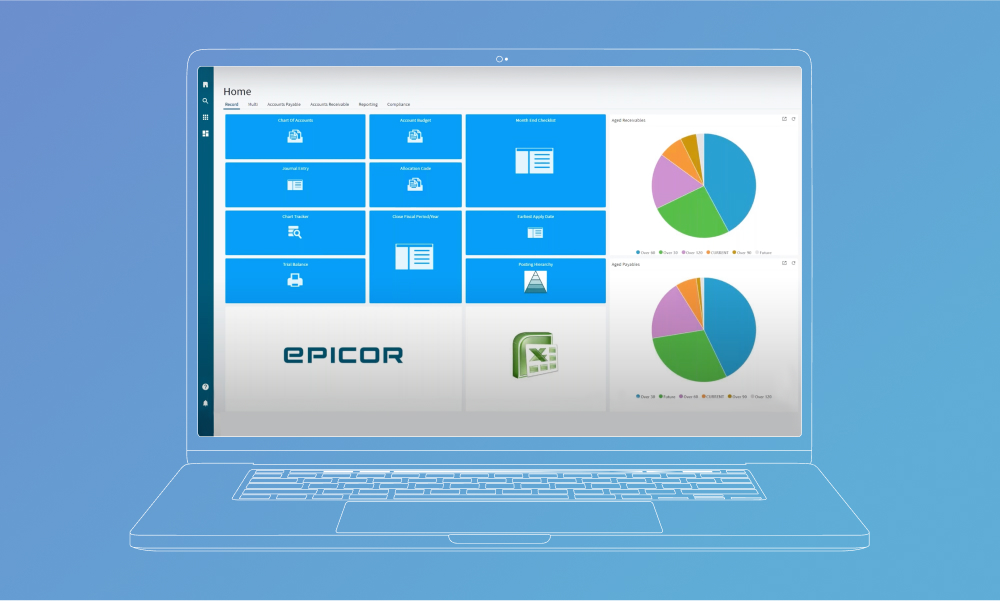
O Epicor Kinetic utiliza um modelo de preços baseado em subscrição e partilha os preços exactos a pedido. As implementações no local e os módulos adicionais podem incorrer em custos separados.
Os fabricantes de produtos farmacêuticos que procuram uma solução ERP escalável que equilibre a conformidade regulamentar com a eficiência operacional, especialmente aqueles com processos de produção mais complexos.
Sage X3 chamou-me a atenção porque é uma das soluções mais maduras que tem vindo a ser aperfeiçoada ao longo das décadas para responder aos desafios específicos do sector farmacêutico. O que a distingue é o facto de o Sage X3 oferecer funcionalidades específicas do sector com a flexibilidade necessária para satisfazer requisitos empresariais específicos, apoiando tanto o fabrico de processos para produtos farmacêuticos como o fabrico discreto para dispositivos médicos. A plataforma é totalmente compatível e pode efetivamente ajudar as empresas farmacêuticas a prepararem-se para auditorias de processos e produtos sem problemas.
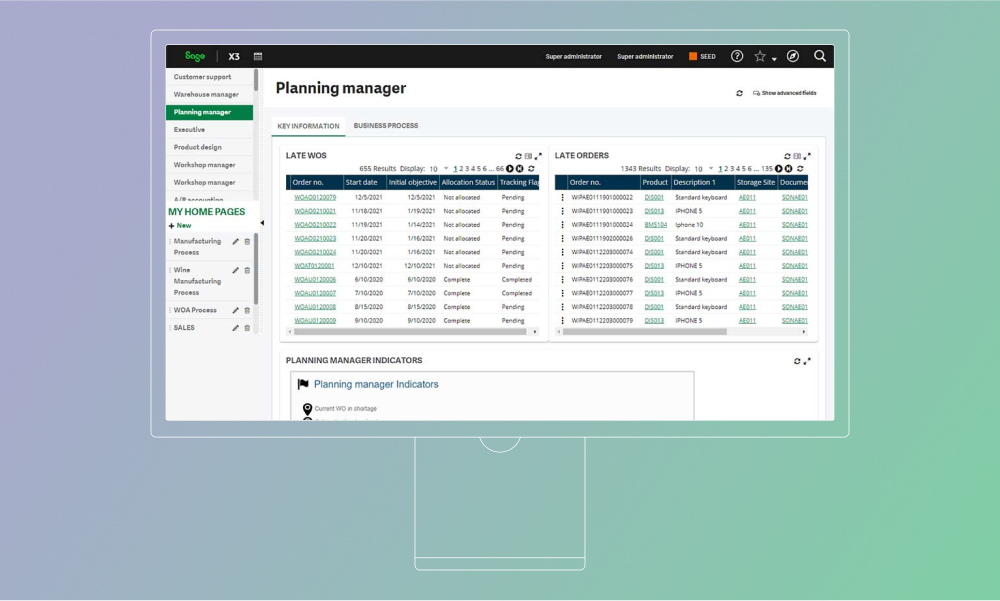
O Sage X3 oferece custos personalizados e segue um modelo de licenciamento tradicional no local com preços baseados no utilizador, embora estejam disponíveis opções de implementação na nuvem com alternativas de subscrição.
Empresas farmacêuticas de média a grande dimensão que necessitam de capacidades de conformidade comprovadas e têm requisitos de fabrico complexos.
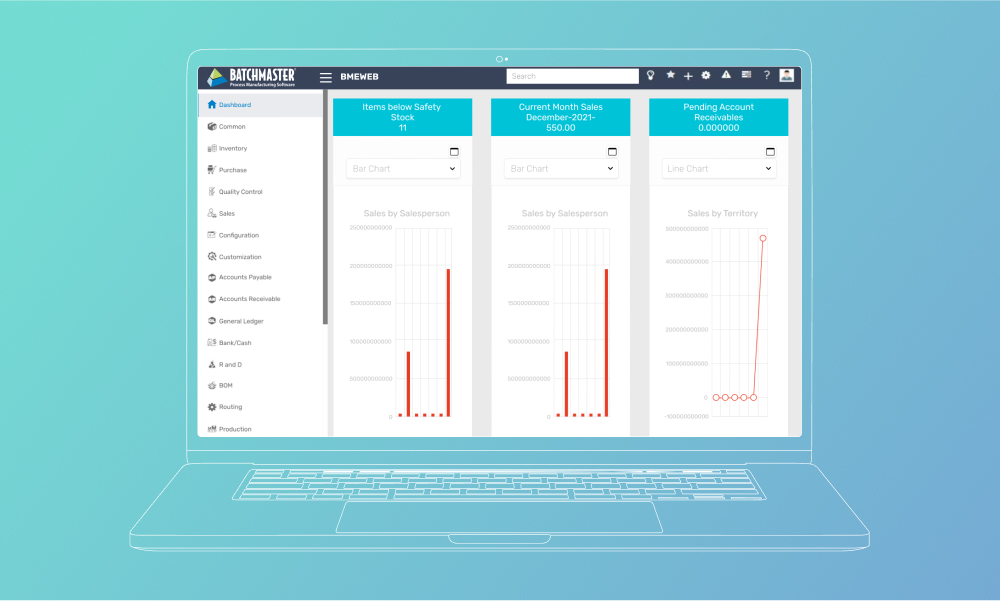
O BatchMaster divulga os custos mediante pedido e segue uma abordagem de preços modular com custos que variam com base no número de utilizadores e nos módulos de fabrico selecionados, disponíveis nas opções de implementação no local e na nuvem.
Fabricantes farmacêuticos de pequena e média dimensão que necessitam de capacidades robustas de fabrico por lotes, mas que pretendem preservar os seus sistemas financeiros existentes e evitar revisões maciças do ERP.
SYSPRO é um daqueles ERPs que não tenta ser tudo para todos. Em vez disso, concentra-se em fazer muito bem o fabrico de produtos farmacêuticos. Gosto da forma como criaram funcionalidades específicas para o sector farmacêutico sem abandonar a sua força principal nas operações de fabrico. O SYSPRO permite às equipas gerir eficazmente o controlo de qualidade, as compras, a gestão de inventário, as operações de produção, as vendas e as finanças a partir de um único sistema integrado, concebido especificamente para as necessidades da indústria.
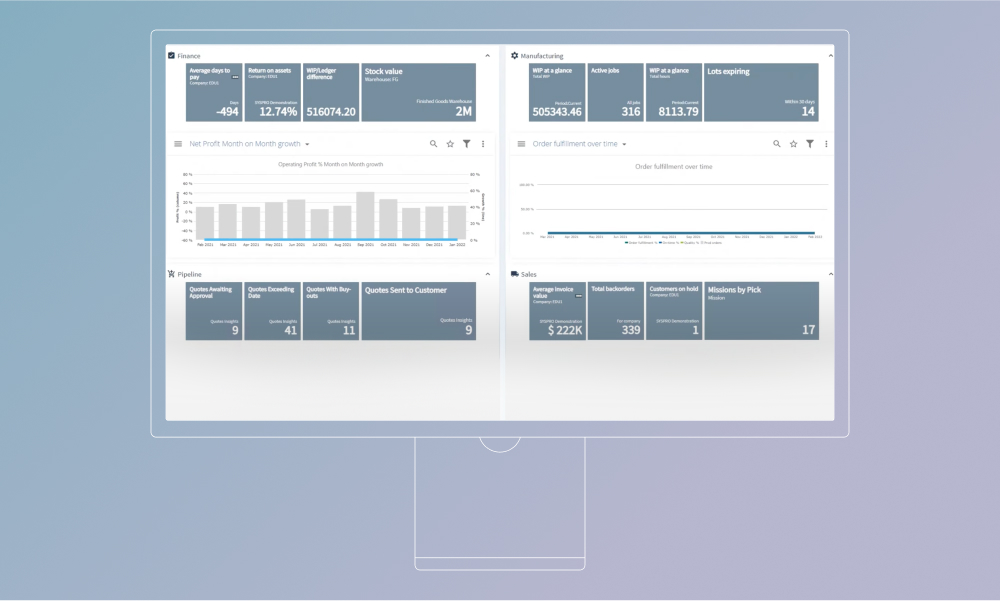
Deve contactar a SYSPRO diretamente para saber os preços para as suas necessidades exactas. De um modo geral, a empresa segue um modelo de preços tradicional baseado em licenças, sendo o número de utilizadores e a seleção de módulos que determinam os custos.
Fabricantes farmacêuticos de média dimensão que dão prioridade a operações de fabrico sólidas e necessitam de capacidades de conformidade fiáveis sem a complexidade de sistemas de nível empresarial de maior dimensão.
Vamos recapitular os módulos ERP essenciais para a indústria farmacêutica que mantêm as empresas no topo do seu jogo.


















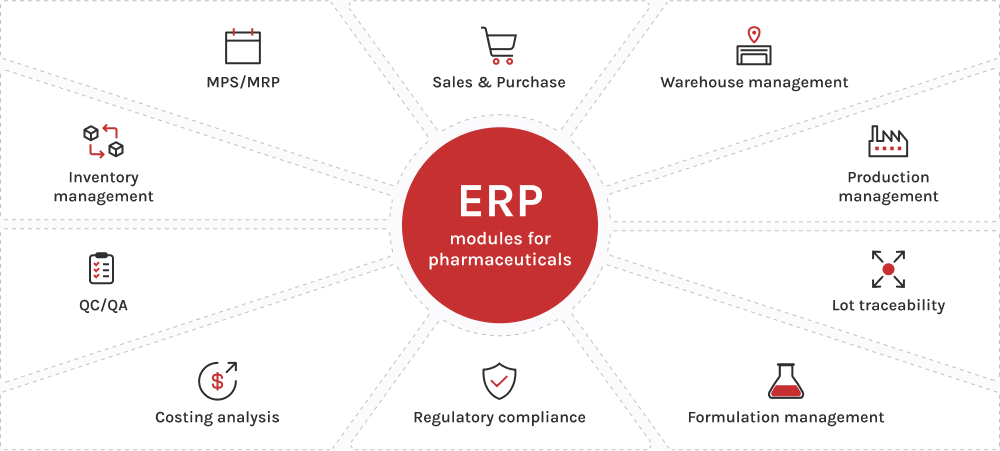
As empresas farmacêuticas estão sob uma pressão incrível para criar produtos inovadores e, ao mesmo tempo, lidar com regulamentos em constante mudança. É por isso que o sistema ERP correto se torna essencial. Trabalhamos em estreita colaboração com as empresas farmacêuticas para conceber soluções que as ajudem a fornecer produtos aos pacientes mais rapidamente. Trata-se de utilizar os dados de forma inteligente para tomar melhores decisões em todos os sectores.

Gestor de carteiras de tecnologias médicas e de cuidados de saúde
Realizámos implementações, personalizações, migrações e integrações de ERP tanto para empresas farmacêuticas como para empresas de fabrico de genéricos.





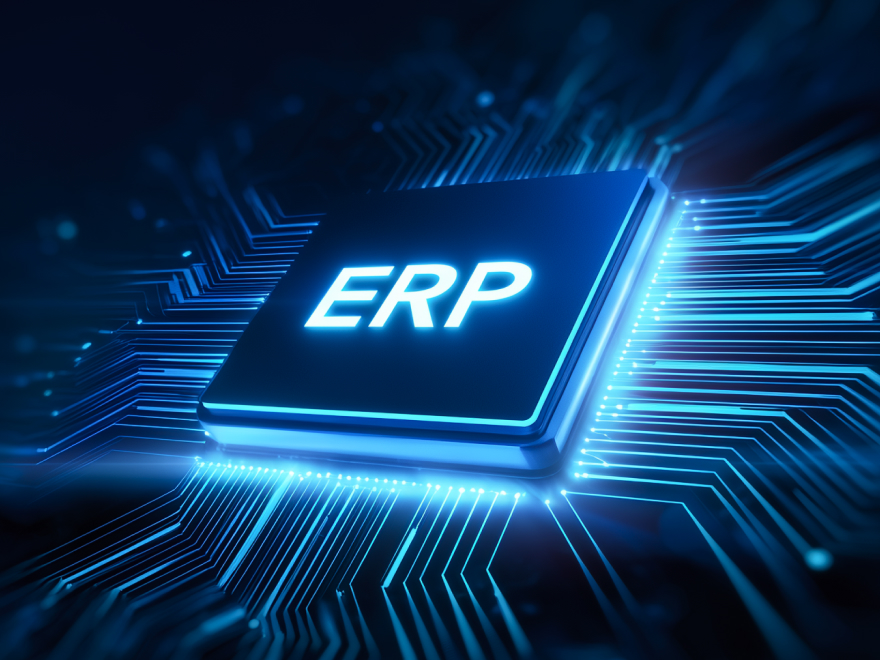






A sua mensagem foi enviada.
Processaremos o seu pedido e contactá-lo-emos logo que possível.

Ao inscrever-se, o utilizador concorda com a nossa Política de privacidadeincluindo a utilização de cookies e a transferência das suas informações pessoais.